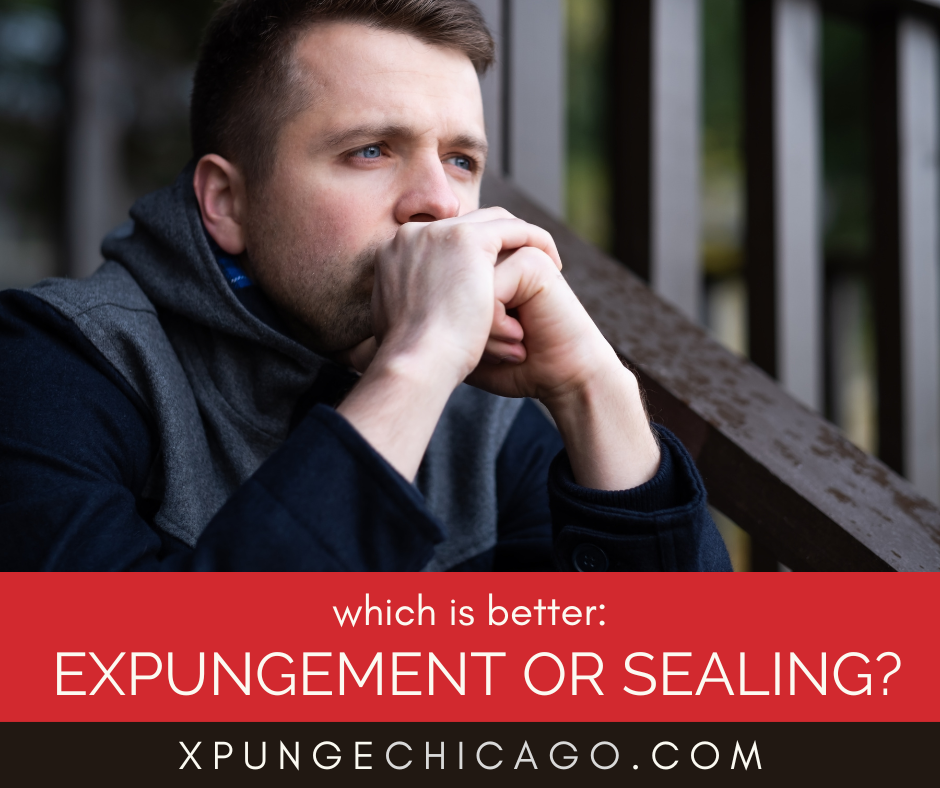If you have a criminal record in Illinois, you might be wondering about the best way to get a fresh start. You’ve probably heard about expungement and sealing, but what’s the difference? And which one is right for you? This guide explains the following:
- The difference between expungement and sealing
- The benefits of expungement
- The benefits of sealing
- Special considerations for veterans
- FAQs about expungement and sealing
Here’s a closer look at each.
The Difference Between Expungement and Sealing
In Illinois, expungement and sealing are two distinct processes. When you expunge a record, it’s either destroyed or returned to you. It’s as if the incident never happened. On the other hand, sealing a record means it’s hidden from most people. However, anyone conducting a fingerprint-based background check can still see a sealed record.
The Benefits of Expungement
Expunging your record offers a clean slate. Typically, you can expunge arrests, dropped charges, findings of not guilty, and vacated convictions. This means potential employers, landlords, or anyone else won’t see these records. It’s a chance to move forward without the weight of your past holding you back.
The Benefits of Sealing
Sealing a record doesn’t erase it, but it does make it invisible to most people. This can be beneficial if you have convictions that can’t be expunged. While most convictions can be sealed, violent ones, drunk driving charges, and in some cases, reckless driving charges usually can’t be.
Special Considerations for Veterans
If you’re an honorably discharged veteran of any branch of the United States Armed Forces, there’s good news. You might be eligible to petition for a certificate of eligibility for expungement, even if you’ve been convicted of a Class 3 or Class 4 felony. However, not all veterans qualify, and not all Class 3 and Class 4 felonies are eligible. It’s essential to consult with a knowledgeable attorney about your specific situation. And remember, regardless of your veteran status, sex offenses, violent crimes, domestic violence, and gun crimes can’t be expunged.
FAQ About Expungement and Sealing
Check out these commonly asked questions about expungement and sealing. If you don’t see the answers here, please call our office and we’ll get you the information you need.
How Do You Begin the Expungement or Sealing Process?
To start, you’ll need to obtain your entire criminal background. After gathering all the necessary information, an attorney can help determine your eligibility. If eligible, your lawyer will file the required documents with the court. If the State’s Attorney objects, you’re entitled to a hearing before a judge.
What to Know
- Were You Found Guilty and Placed on Court Supervision for a Misdemeanor Offense? Many of these cases can be expunged after meeting specific conditions.
- Were You Charged with a Misdemeanor or Felony Crime, Went to Trial, and Found Not Guilty? Yes, these arrests may be expunged.
- Did You Receive 710 Probation, 1410 Probation, or TASC for a Drug Possession Charge? Yes, your arrest may qualify for expungement.
- Were You Found Guilty of a Misdemeanor and Placed on Conditional Discharge, Sentenced to Probation or Jail Time? These cases often can’t be expunged, but you might qualify for sealing under certain conditions.
After understanding the differences and benefits of both expungement and sealing, you’ll be better equipped to make an informed decision. With the help of an attorney’s experience and knowledge, you can navigate the process smoothly and get the fresh start you deserve.
Do You Need to Talk to an Attorney About Expungement or Sealing?
If you’re tired of your criminal past coming back to bite you, we may be able to help. Call us right now at 847-920-4540 or fill out the form below so we can talk about your case.













